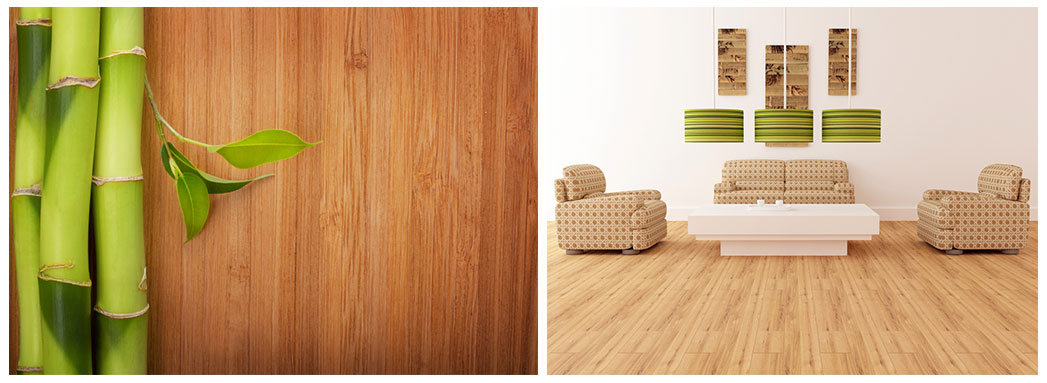Bamboo floors, eco friendly floors
Not so long ago, the only time you saw bamboo was in a kitschy tiki bar or at Trader Vic’s. Today, however, bamboo has come front and center as one of the world’s best and most versatile renewable resources.
As a type of grass, bamboo grows extremely quickly and it has a tensile strength on a par with steel. It can be made into virtually anything ordinary wood can be used for, from bowls, forks and cutting boards to stylish furniture for inside and outside the home.
Increasingly, bamboo is also being used as a flooring material, since it’s a very “green” way to floor your home. What, you say? A grass for flooring? Well, not only is natural bamboo strong, but it is terrific at resisting moisture, so the occasional spill means nothing to a bamboo floor.
There are two basic types of bamboo flooring: strand-woven and hand scraped. Strand-woven bamboo flooring (also known as engineered bamboo) is created using a laminating process. It is particularly good for more formal areas, since it looks just like traditional wood floor, albeit with more characters. If you want a more antiqued look, you’ll want to consider hand-scraped bamboo. This style isn’t cheap, however, mostly because it takes up to 10 times longer to produce than the strand-woven bamboo.

Characteristics of Bamboo Flooring
There are also two basic ways bamboo flooring is constructed – horizontal and vertical. The horizontal floorboards are made by laminating three layers of bamboo together so that they look like flattened stalks. Vertical floorboards have the strips turned 90 degrees, so they appear to be stacked sideways on the board instead of lengthwise.
Due to the way they are constructed, horizontal floorboards have a harder surface and are more stable when laid onto a surface than vertical floorboards.
Engineered bamboo floors are similar to other laminated products. A thin layer of bamboo is bonded to a non-bamboo material that serves as a base. It’s ideal for installations that are over concrete or wood, such as plywood, since it has a bit more flexibility than solid bamboo.
Shopping for Bamboo
If you’re in the market for bamboo flooring, be sure that you purchase flooring that doesn’t use adhesives containing formaldehyde.
Be sure that your bamboo flooring comes with a warranty. Because it’s tough and durable, you should get at least a 20-year warranty, if not a lifetime one.
If you’ve installed a normal wood floor before, bamboo flooring won’t offer you any additional surprises. But if you’re a do-it-yourselfer, you may want to bring in some pros to do the installation. Bamboo flooring is more expensive than traditional woods and boards that were cut incorrectly and end up as scrap can really blow your budget.

